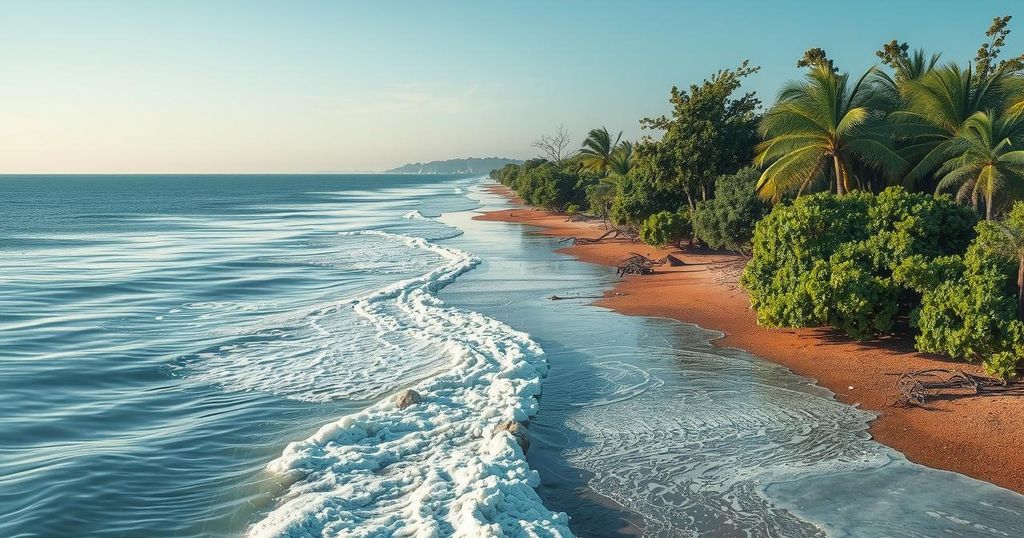Rising Sea Levels in Guinea-Bissau: A Call for Climate Justice

Rising sea levels in Guinea-Bissau threaten coastal villages, leading to severe poverty and loss of livelihoods. Villagers face contaminated water supplies, diminished farmland, and an uncertain future. The situation highlights the urgent need for global climate justice as Guinea-Bissau contributes minimally to carbon emissions. Resettlement efforts are hindered by local conflicts, exacerbating the community’s challenges.
The rising sea levels in Guinea-Bissau are leading to the severe impoverishment of residents, particularly in coastal villages like Djobel. As the sea encroaches upon their land, villagers are witnessing their farmland being ruined, drinking water becoming contaminated, and their homes being destroyed. Despite contributing marginally to global greenhouse gas emissions, Guinea-Bissau’s communities are facing significant challenges linked to climate change, underscoring the need for climate justice on an international scale.
Guinea-Bissau, one of West Africa’s poorest nations, has a population of approximately 2.1 million, with 70% living below the poverty line. Coastal communities engage in a semi-farming and semi-fishing lifestyle vulnerable to the impacts of climate change. The effects of rising sea levels, intensified by global warming and heavy rainfall, have become increasingly severe over the last two decades, worsening economic conditions and threatening the existence of villages like Djobel.
The plight of Djobel’s residents exemplifies the broader struggle against climate change, highlighting the urgent need for international solidarity and support for vulnerable communities. Efforts to relocate affected populations face complications, yet the call for climate justice remains critical. With Guinea-Bissau’s low greenhouse gas emissions, the impact of climate change on its people demonstrates a stark inequity in global responsibilities and consequences.
Original Source: www.weforum.org








